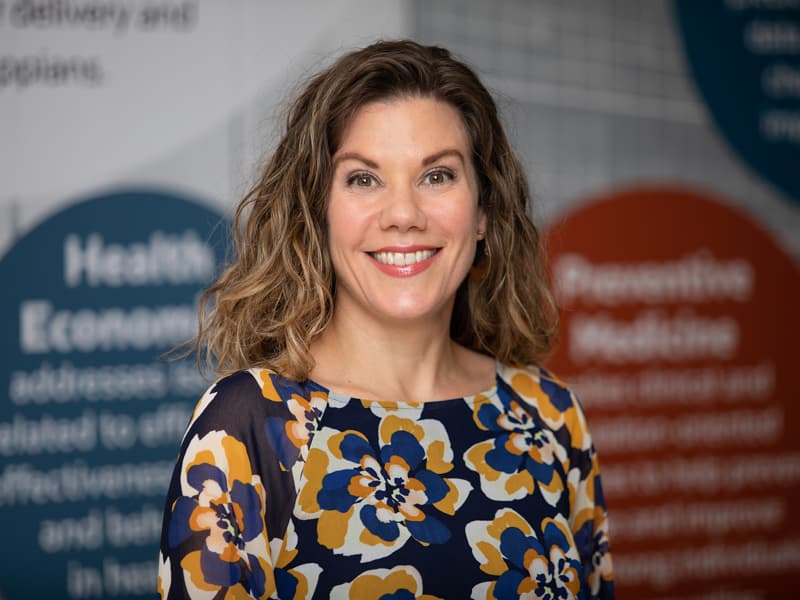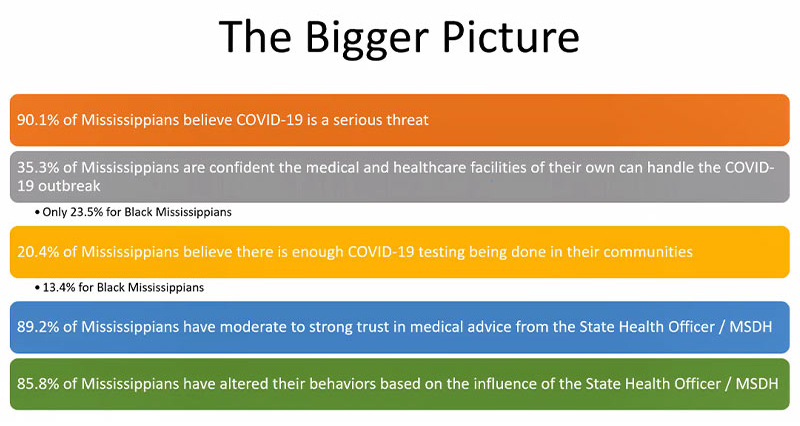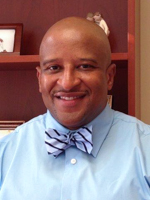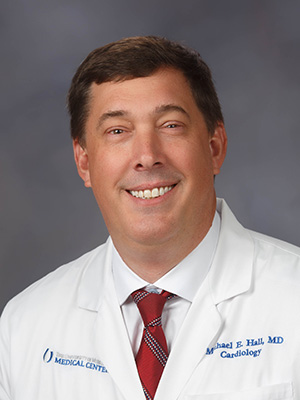UMMC begins NIH study on COVID-19, community engagement

The University of Mississippi Medical Center received a $1 million grant for community outreach and engagement in minority communities heavily affected by COVID-19.
The National Institutes of Health announced the Community Engagement Alliance Against COVID-19 Disparities, or CEAL, last month. UMMC will be one of 11 universities in as many states conducting work for the one-year, $12 million project.
Dr. Caroline Compretta, assistant professor of preventive medicine, is the principal investigator for the UMMC CEAL site.
“The COVID-19 pandemic has exacerbated long-lasting health disparities in Mississippi and in the United States,” Compretta said.

For instance, while 38 percent of Mississippi’s residents are Black or African American, they make up more than half of COVID-19 diagnoses in the state. Likewise, Hispanic and Native American populations are experiencing disproportional rates of COVID-19 cases and deaths compared to white Americans in other parts of the country. Decreasing the effects of COVID-19 in these communities can’t rely on just clinicians and hospitals, but must use established and trusted community networks and leaders.
The first goal of CEAL is to “conduct urgent and rapid community research on engagement, sources of trust and communication in order to build trust and produce culturally-specific messaging related to COVID-19,” Compretta said.
The team will use a combination of surveys, focus groups and listening sessions to assess beliefs and behaviors around COVID-19 risk and prevention.

For this UMMC will be working with Mississippi State Department of Health’s Dr. Victor Sutton, director of the Office of Preventive Health and Health Equity and a co-PI for CEAL. MSDH has already started evaluating sources of trust among Mississippians, sharing some early results during a recent Jackson Heart Study conference.
“Building on the strength of local organizations, as well as our long-standing community-engaged research efforts, will help us communicate effectively to address disparities and support the proven resilience within communities,” said Dr. Eliseo Pérez-Stable, director of the National Institute on Minority Health and Health Disparities. “This work will help ensure people get accurate and trustworthy information about the virus, how to reduce its spread, and how to protect themselves and their families.”
This first aim helps the study achieve its second: to promote and increase racial and ethnic diversity in COVID-19 clinical trials. Low clinical trial enrollment among African Americans is not a new phenomenon, and at least one COVID-19-related study shows that this trend is continuing.
“We want to understand what some of the barriers are to clinical trial participation,” Compretta said, and in turn, “provide education and link [community members] to the clinical trials we have at UMMC in order to increase participation.”

CEAL is working under the umbrella of the Mississippi Center for Clinical and Translational Research, which has built a statewide infrastructure to conduct public health and community-level research. Dr. Michael Hall, UMMC associate professor of medicine and MCCTR director of clinical and population studies, is also a CEAL co-PI.
Compretta, who became the MCCTR’s Community Engagement and Outreach Core leader in July, emphasized that CEAL will involve partners spanning from the Gulf Coast to the Delta. MSDH, the University of Southern Mississippi, Tougaloo College and Mississippi State University, will all help conduct the work. In addition, CEAL will enlist the help of approximately 20 community organizations including the Fannie Lou Hamer Foundation, Mississippi Band of Choctaw Indians and Delta Alliance for Congregational Health.
Like all things related to COVID-19, the timeline and implementation of CEAL is happening on a much faster timeline than other health research.
“We have had to be nimble in order to respond to this pandemic and recognize that this project is more fluid than usual,” Compretta said. For instance, one of CEAL’s goals is to understand the factors that influence vaccine trial participation, but this aim may change depending on if or when an approved vaccine becomes available to the public.
Likewise, CEAL’s conclusions will also be able to flex and inform other areas of public health for years to come, beyond the eventual end of the COVID-19 pandemic.
“We can apply the lessons we learn from CEAL to help examine other disease states and encourage participation in other kinds of clinical trials,” Compretta said.


